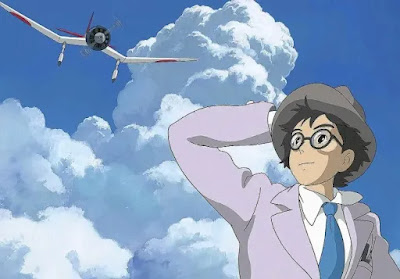In the new Kindle e-chapbook Twelve O’Clock Haibun: Parables & Poems from a Classic TV Show, humor-loving soldier-poet (and former “Army lessons-learned analyst”) Randy Brown invites readers to view the 1964-1965 first season of the “12 O’Clock High” as a series of moral dilemmas and puzzles.
The TV series is now viewable FREE on Amazon Prime Video, as well as Internet platforms.In this standalone spin-off to the author’s ground-breaking 2022 lyrical meta-essay Twelve O’Clock Haiku: Leadership Lessons from Old War Movies & New Poems, readers can now match wits and wisdom with the charismatic and brooding Brig. Gen. Frank Savage (Robert Lansing), commander of the fictional 918th Bomb Group, as he and his heroic air crews stoically navigate tests of endurance, morality, courage, and loss.
A haibun is a Japanese form, comprised of a short prose narrative followed by a haiku. In haibun, the prose and poetry elements traditionally do not address each other directly, but they do relate thematically. Ideally, the impressions left after reading a haibun should be greater than the sum of its two parts.
The Twelve O’Clock Haibun project comprises brief, spoiler-free summaries of all 32 episodes of the TV show’s first season, plus one additional “final” episode in order to complete a narrative arc. For each, a prose section first describes an episode’s situational frame, without offering resolutions. A companion haiku then illuminates a moral question or dilemma suggested by the story. Readers are left to reflect on the implications of each situation. As in war, there are no easy answers.
In addition to other accolades, Brown is a three-time poetry finalist in the Col. Darron L. Wright Memorial Awards, administered annually by the Chicago-based literary journal Line of Advance. His 2015 collection, Welcome to FOB Haiku: War Poems from Inside the Wire, was awarded a gold medal distinction from the Military Writers Society of America. His chapbook So Frag & So Bold: Short Poems, Aphorisms & Other Wartime Fun was published in 2021.
He is the co-editor of two non-fiction books: Reporting for Duty: Citizen-Soldier Journalism from the Afghan Surge, 2010-2011, published in 2015; and Why We Write: Craft Essays on Writing War, published in 2019.
As “Charlie Sherpa,” he blogs about modern war poetry at www.fobhaiku.com, and about writing on military themes at www.aimingcircle.org.
Middle West Press LLC is a Johnston, Iowa-based editor and publisher of non-fiction, journalism, and poetry. As an independent micro-press, we publish one to four titles annually. Our projects are often inspired by the people, places, and history of the American Midwest.

